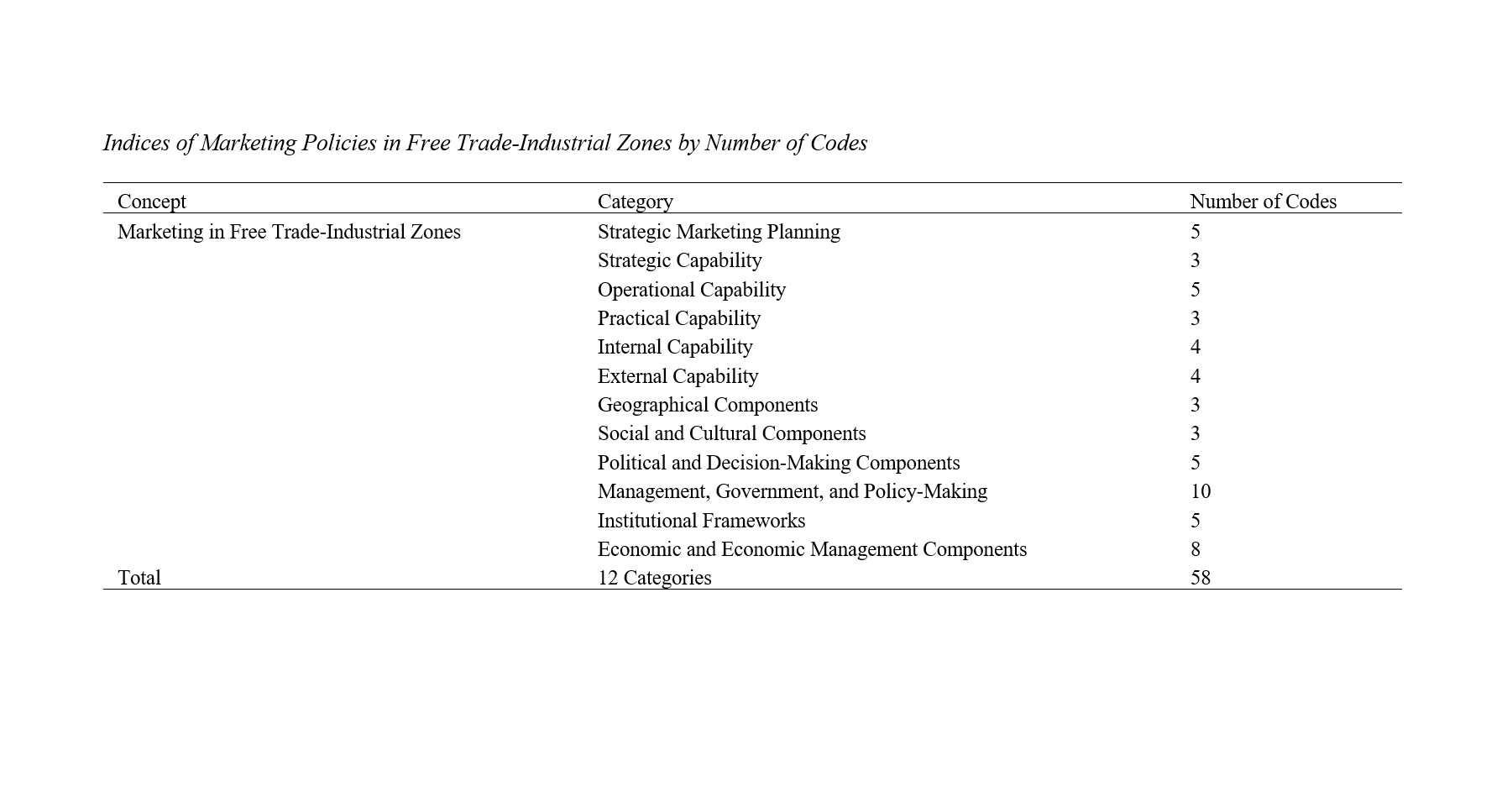Designing an Effective Marketing Policy Package in Free Trade Zones
Keywords:
marketing policy package, effectiveness, free trade zone, Arvand, meta-synthesis methodAbstract
Objective: Corporate marketing policy is an important topic among policymakers and is considered a tool for achieving desirable economic growth and sustainable development. Accordingly, the purpose of this research was to design an effective marketing policy package in free trade zones.
Methodology: The present study used a meta-synthesis approach and was applied in purpose. The sample consisted of 47 articles on marketing policies, and the same number of articles were selected as the sample size. The research tool was a researcher-made questionnaire, and the Delphi method with 15 experts from academia and members of the Free Trade Zones Organization was used for data analysis.
Findings: The findings indicated that the effective marketing policy package in free trade zones consists of 4 policies and 11 main components. The primary policies are as follows: foundational policies - main actions include (institutional framework and economic management aspects), supportive policies overcoming barriers and inhibitors include (political aspects and governmental policymaking), and facilitative-supportive policies include (social and cultural aspects and the creation of strategic marketing capabilities) and facilitative-supportive policies include (creation of practical marketing capabilities, internal capabilities, external capabilities, operational capabilities, and geographical aspects).
Conclusion: Based on the results, it can be said that designing an effective marketing policy package in free trade zones, as it encompasses various policies and components, can assist economic system planners in devising the best strategies for these markets.
Downloads

Downloads
Additional Files
Published
Submitted
Revised
Accepted
Issue
Section
License
Copyright (c) 2024 Ehsan Abbaspour, Ebrahim Albonaiemi, Mohammad Haghighi (Author)

This work is licensed under a Creative Commons Attribution-NonCommercial 4.0 International License.






















